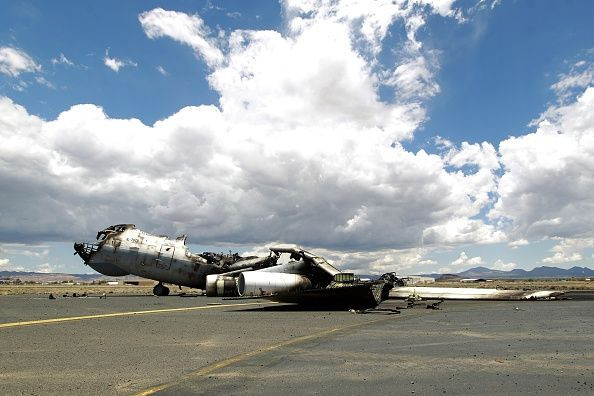Trump Vetoes 3 Bills Blocking Arms Sales To Saudi Arabia and UAE

President Donald Trump used his power to veto, yet again, three bills that blocked weapons sales worth $8.1 billion to Saudi Arabia and the United Arab Emirates. Trump argued that his move was necessary and THE need of the hour for the two countries to defend themselves against Iran.
Last week, the House of Representatives had backed resolutions to block the sale of precision-guided munitions to Saudi Arabia and the UAE, and Trump had promised to veto those. Reuters said lawmakers want the U.S. to push the Saudis to improve their human rights record and do more to avoid civilian casualties in the four-year-long Yemen war. The Saudi and UAE coalition is leading an air campaign in Yemen against the Iran-backed Houthi rebels.
Trump justified his move in letters to the Senate stating that the three congressional resolutions “would weaken America’s global competitiveness and damage the important relationships it shares with its allies and partners.”
“Apart from negatively affecting our bilateral relationships with Saudi Arabia, the United Kingdom, Spain and Italy, the joint resolution would hamper the ability of the United States to sustain and shape critical security cooperation activities,” Trump said in one of the letters.
Trump called the bills “ill-conceived" and that they failed to address the Yemen conflict. He said the United States is very concerned about the conflict’s toll on innocent civilians and is working to bring the conflict the Yemen conflict to an end. “But we cannot end it through ill-conceived and time consuming resolutions that fail to address its root causes,” Trump said. “Rather than expend time and resources on such resolutions, I encourage the Congress to direct its efforts toward supporting our work to achieve peace through a negotiated settlement to the conflict in Yemen,” he said.
In May, Secretary of State Mike Pompeo in a letter to congressional lawmakers had said that he determined that an emergency exists, which requires the immediate sale of the defense articles and defense services to Saudi Arabia, the UAE, and Jordan in order to deter further the malign influence of the Government of Iran throughout the Middle East region.
However, the Congress isn't convinced as Saudi Arabia was involved in the killing of a U.S. based journalist Jamal Khashoggi in the Saudi Consulate in Istanbul in 2018. The Hill said the Congress, with the same concerns, had passed a resolution earlier this year that would have ended U.S. military support for the Saudi-led coalition in Yemen.
© Copyright IBTimes 2024. All rights reserved.




















